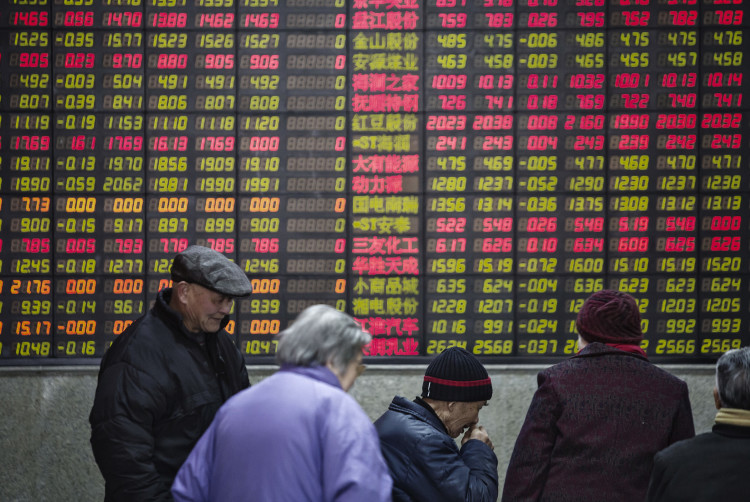Here’s a Chinese Market Collapse That Helps Investors: Gadfly

published Jul 27th 2016, 10:46 pm, by Christopher Langner
(Bloomberg Gadfly) —
China’s government has once again managed to engineer a mini-stock market collapse. This time, though, it’s probably a good thing.
Qingdao Huaren Pharmaceutical’s P/E
4,460 times
The ChiNext composite index dropped 5.6 percent Wednesday after a report in the 21st Century Business Herald indicated the authorities may curb the ability of wealth-management vehicles to invest in equities. The story also dragged the blue-chip-heavy Shanghai Composite 1.9 percent lower and lopped 4.5 percent from the Shenzhen index. (The ChiNext fell another 1.8 percent as of 11:30 a.m. Thursday, while the Shenzhen index declined 1.4 percent and the Shanghai measure was down 0.6 percent.) As deep as the plunges seemed, they were merely the worst since early June. Volatility is a fact of life in China’s stock market.
The declines this time were led by small-cap companies, to which most of the wealth-management product money seems to have flowed. That explains why the ChiNext was the worst hit, followed by Shenzhen. It’s worth noting that these products have been widely referred to as shadow banking. Among other things, they help lenders take loans off their books and could be fueling an unhealthy bubble in China’s smaller stocks.
The ChiNext has been the poster child for the exuberance surrounding bets on high-growth companies. While the index itself was already down 12.6 percent this year before Wednesday, many of its constituents have rallied at a speed that might invite regulatory scrutiny.
Take Shenzhen V&T Technologies, the leader so far this year. The auto-parts maker debuted in the small-cap market in March and has since rallied 969 percent. Its stock price now gives it a value of 104 times the past year’s earnings.
There are more than 30 stocks that have shot up 100 percent or more this year in the ChiNext, most of them trading at 100-plus times earnings. In case that looks vertiginous, the index has an overall P/E ratio of 69.5. The same gauge for the Russell 2000, the U.S. small-cap index, is 19.6.
Of the companies that have positive earnings in the ChiNext, 177 trade at more than 100 times. Five are over 1,000, led by Qingdao Huaren Pharmaceutical, a maker of systems to deliver medical infusions, at 4,460 times.
If shadow-banking money is fueling these aberrations, then good riddance. For once, Chinese regulators are doing the right thing with market intervention.
This column does not necessarily reflect the opinion of Bloomberg LP and its owners.
To contact the author of this story: Christopher Langner in Singapore at clangner@bloomberg.net To contact the editor responsible for this story: Paul Sillitoe at psillitoe@bloomberg.net
copyright
© 2016 Bloomberg L.P



No Comment